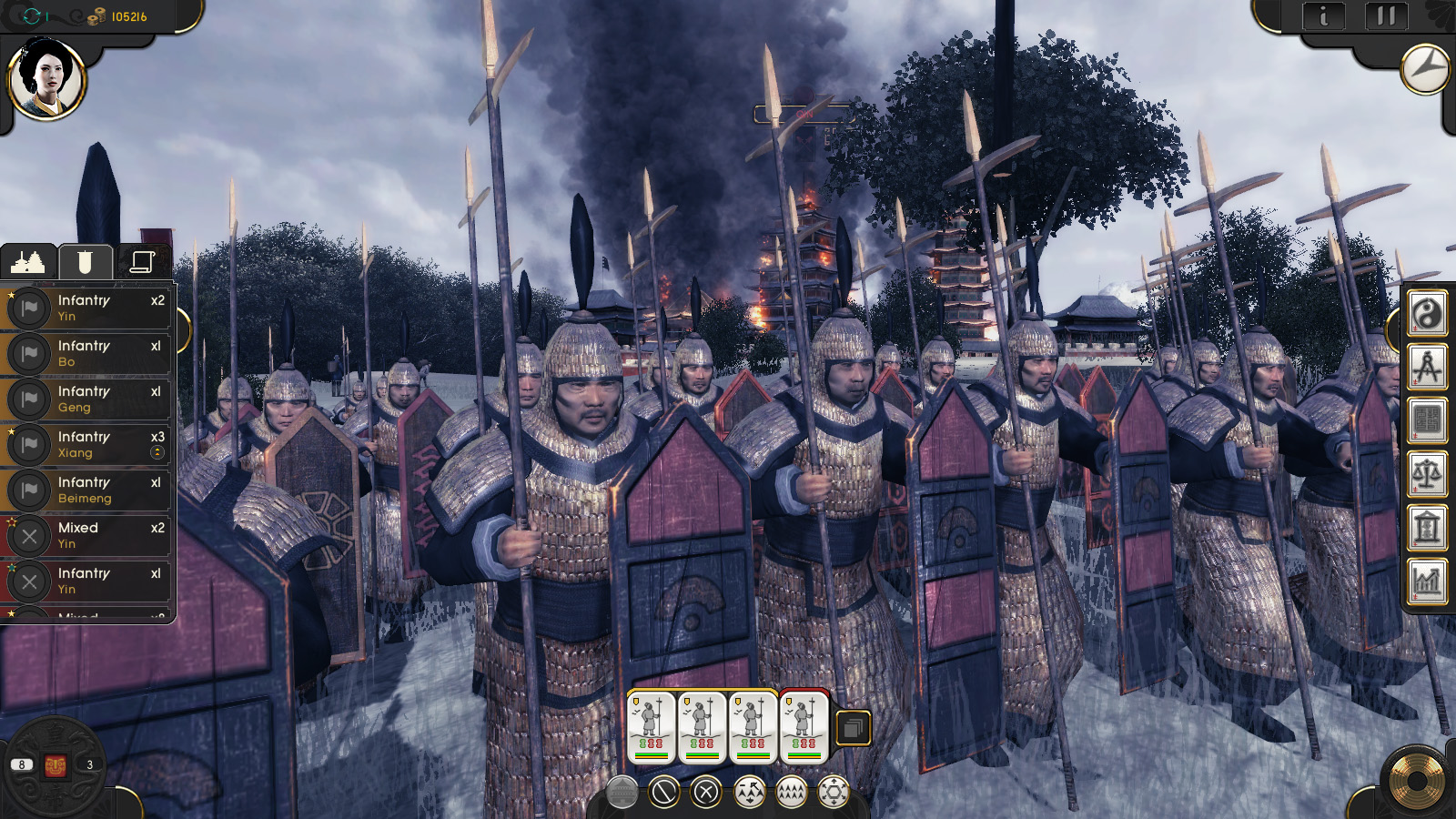Our Verdict
A perfectly good 4X game with an innovative combat system that feels a bit bland when framed against the richness of its setting.
PC Gamer's got your back
What is it? Turned-based strategy game set in ancient China, borrowing heavily from Civilization and Total War.
Reviewed on: Windows 10, Core i7-6700HQ @ 2.60GHz, 8 GB RAM, GeForce GTX 960M
Price: $30/£23
Release date: Out now
Publisher: Iceberg Interactive
Developer: Shining Pixel Studios
Multiplayer: Up to 15 players, competitive.
Link: Official site
The first few cracks at a new 4X game are always so hilariously disastrous. In my first journey through Oriental Empires I expanded way too quickly, tied up all of my resources in the upkeep of rice paddies surrounding my princedom, and ordered a small, pitiful battalion of sword-drawn peasants to investigate an interloping village newly nestled on the south side of the mountain range. In the exact moment my army exited my capital city, I was greeted with news that the local nobility was upset enough by my rule to lead an overnight insurrection. The throne was now occupied by a local militia.
Whether they were upset about my 'authority' levels, or my tanking economy, or the dwindling food reserves, I don’t know. I turned my army around, desperately trying to reclaim the seat of power, and was gravely informed that I couldn’t besiege the walls with my low-tech conscripts. The rebels had slammed the door behind my back and threw away the key. My kingdom was stolen. I died laughing.
That’s the one major thing that distinguishes Oriental Empires from the other grand strategy games on the market. Horrific, ironic, and brutally random catastrophes can leave your empire extremely vulnerable. Sometimes it’s the most frustrating thing in the world, and sometimes it’s exactly what you need to pull out an unlikely victory. In my very next game a rival commonwealth with a much stronger military was nipping at my expansionary provinces. I was holding on for dear life, until suddenly, the game informed me that the empire’s easternmost city (and the one closest to my civilization) was ravaged by a fire. I barged through its charred, decimated defenses with exactly two units and sued for peace the very next turn.
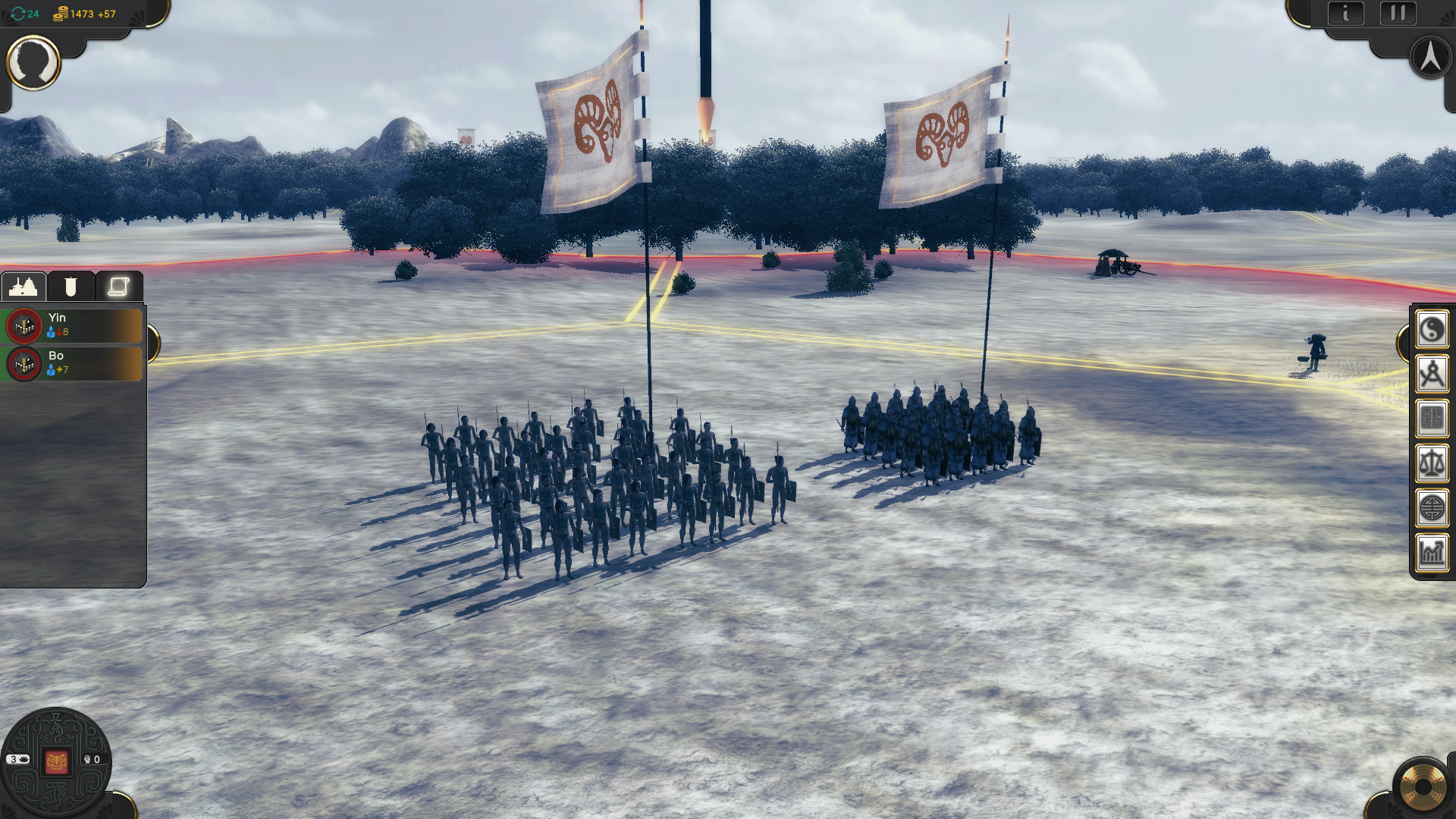
Warring States
Unsurprisingly, the franchise Oriental Empires apes the most is Civilization.
Oriental Empires is developed by Shining Pixel Studios and published by Dutch upstart Iceberg Interactive, which is best known for culty gems like Endless Space and Starpoint Gemini. The game takes place during China’s Bronze Age, specifically the years between 1,200 B.C. and 1,200 A.D. In the grand campaign, you take control of one of the dynastic superpowers (Han, Zhao, Hu) that are all vying for superiority in East Asia during the Warring States and Three Kingdoms periods.
Ancient China is one of the major unturned stones in videogames, but structurally Oriental Empires is a fairly straightforward turn-based strategy game that blends together all the big names of the industry into a glossy pate. You’ll find Crusader Kings’ patented system of bloodlines and hereditation, where racial leaders are born with their own unique composite of statistics that informs how effective they are in battle and leadership. You can enact sweeping edicts packed with long-term game-altering ramifications, cribbed directly from Europa Universalis. And the combat is a simplified distillation of Total War: while you never take tactical control of your units, you do send them into battle with a preselected formation and watch the battles unfold in real time.
But unsurprisingly, the franchise Oriental Empires apes the most is Civilization. Their fundamental mechanics are nearly identical: a hexagonal map replete with natural resources and bandits, a deep, dovetailing tech tree, and three victory conditions split nicely between domination, diplomacy, and culture. The most blatant plundering might the negotiation system, where you barter and haggle with other empires. The treaties, trade agreements, and joint declarations of war all seem copy-pasted directly from Civilization with some new Eastern-sounding phraseology. (For instance, a Declaration of Friendship is now called a Fraternal Harmony Pact.)
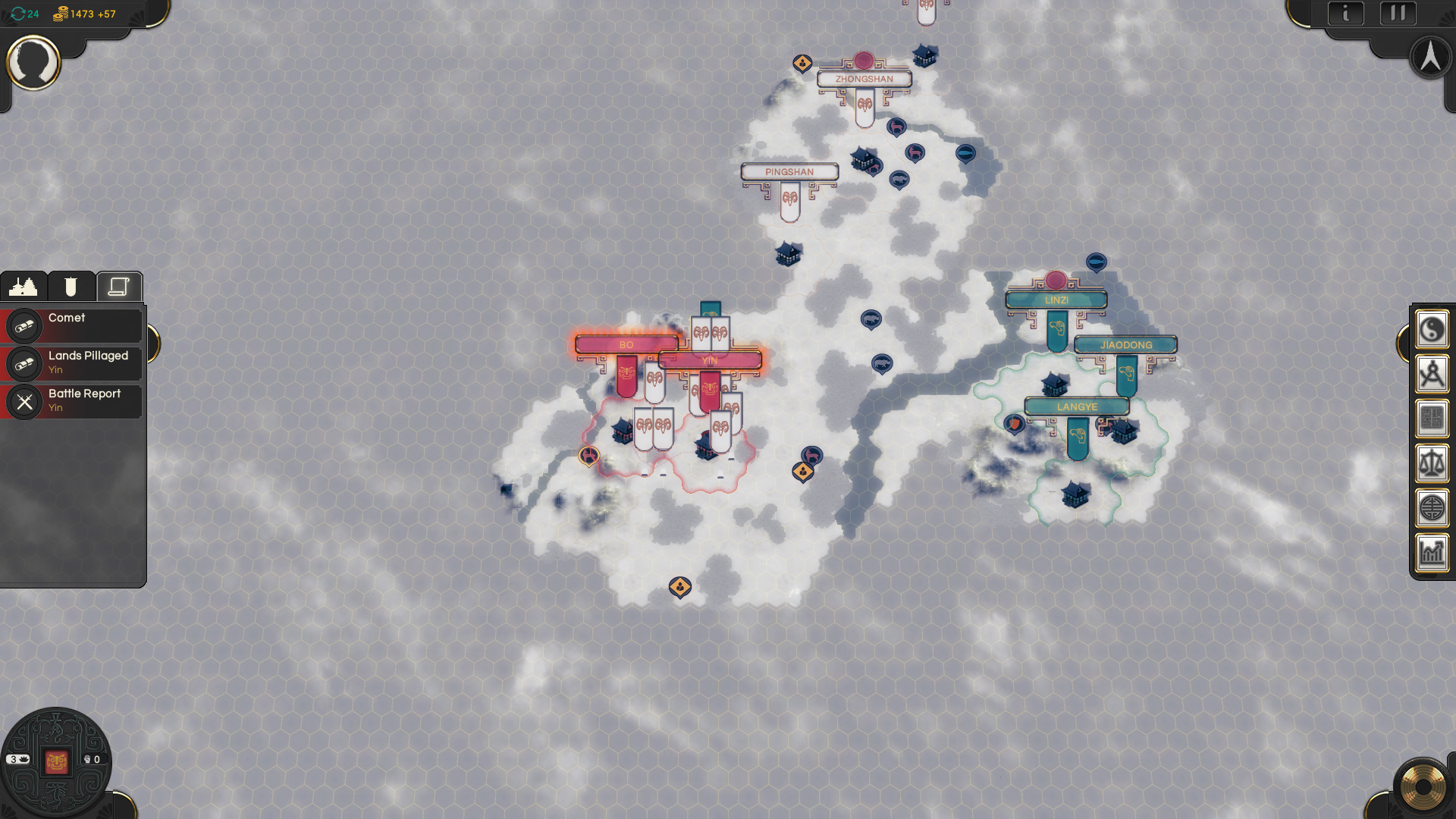
I’m not necessarily pointing out Oriental Empires’ mimicry as a condemnation. There are far worse inspirations than the world’s greatest strategy game. As it turns out, when you take note of all of Firaxis’ good ideas, you can put together an approachable, intuitive design. Oriental Empires will not scare you off; I found myself navigating the game’s rules and regulations seamlessly after a few hours, but that’s also part of the problem. Iceberg simply doesn’t go far enough. There are moments, like those marauding nobles in my capital, where Oriental Empires captures the accidental storytelling that makes 4X games great, but there are plenty of missed opportunities that would’ve given the game more of its own identity.
The playable factions are all adopted from the legendary legionnaires in China’s half-fable early history. That’s an awesome idea, but the distinction between them is limited to a few tugs on the balance slider. The White Di, as the game informs us, were a nation of people living in the Mongolian steppes that were portrayed as demonic centaurs in Chinese primary sources. But their only distinguishing factor on the playing field is a 10 percent bonus to unit resiliency. It’s a supremely boring, safe way to color in the margins of a dynasty, and that’s a choice Iceberg makes too often.
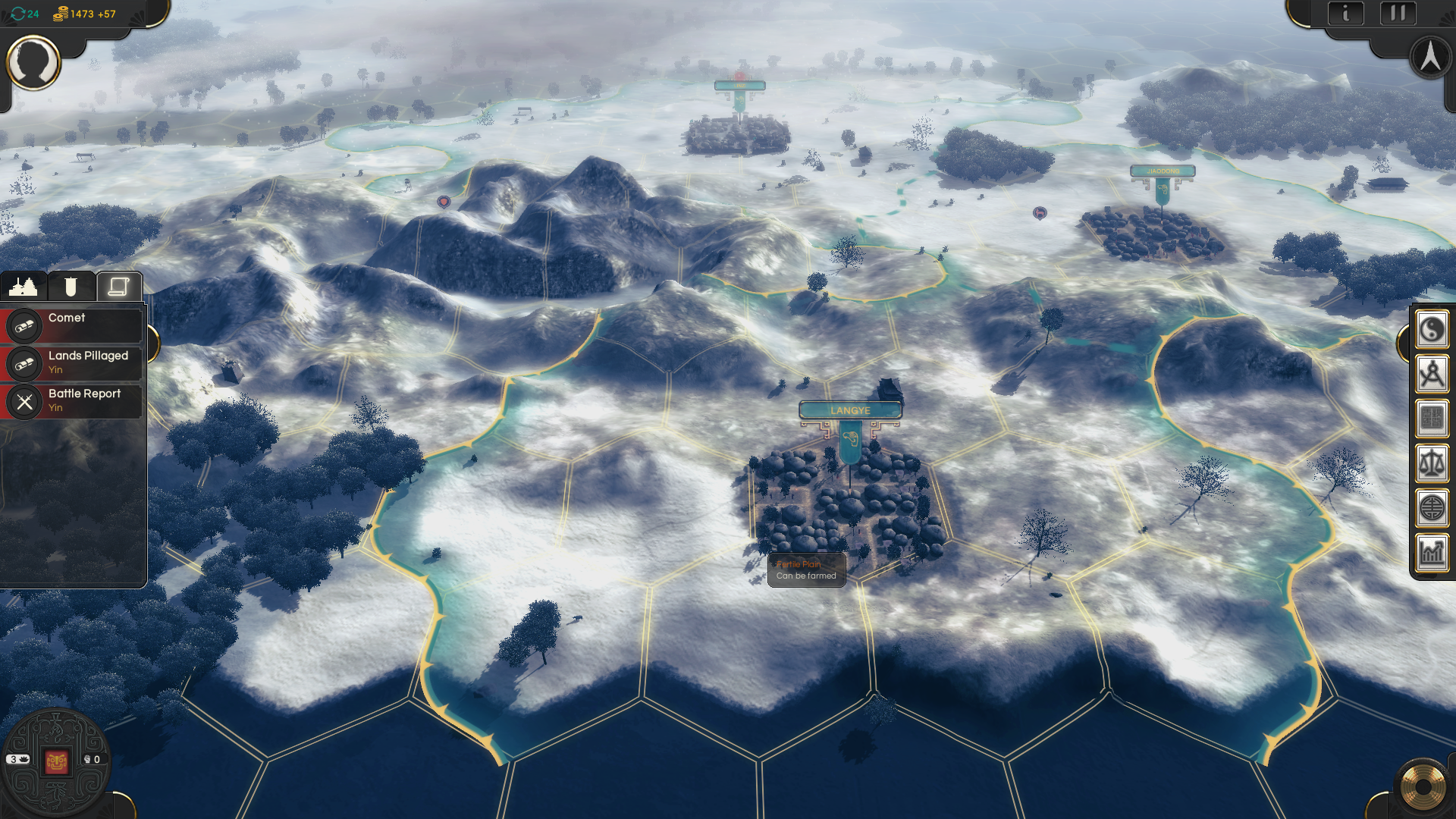
Keep it simple
Oriental Empires deliberately taps out right before Marco Polo made landfall in China, which gives the whole experience a more digestible, holistic feeling.
Other areas benefit from that restraint and compromise, though, especially the combat system. I’ve bounced off of Total War dozens of times; everything about that franchise attracts my sensibilities, but I’m out of my depth whenever I’m trying to keep my battlelines straight or outflank encroaching calvary. In Civilization, Firaxis guts any real-time unit-to-unit combat in favor of a big, broad dice-roll, but Iceberg finds a nice middle ground. No, I don’t want to specifically command each of my battalions, I’m bad at that, however I’m happy to give them a general idea of what I want (attack, defend, ambush) and let the AI take over. Troop movement for each player in Oriental Empires is resolved all at once at the end of the turn, which means you can do some tricky stuff like, say, successfully predicting the tile you think your opponent is retreating towards to keep the rout on. The lack of direct control might infuriate a lifelong internet general, but it works pretty well if you’re a plebe.
This is a little stranger, but I’m also a fan of Oriental Empires' limited scope. Civilization, with its eon-spanning tech-tree and completionist obsession, can often get a little silly as the campaign drags on. Who among us has not fielded chivalrous knights next to Panzers? Or broke ground on Petra in the early 20th century? That’s obviously part of the fun—4X games are built on witnessing the fucked-up world you and your A.I. compatriots produce—but Oriental Empires deliberately taps out right before Marco Polo made landfall in China, which gives the whole experience a more digestible, holistic feeling. (Though it makes the decision to use the Eurocentric term 'Oriental' in the title especially baffling.)
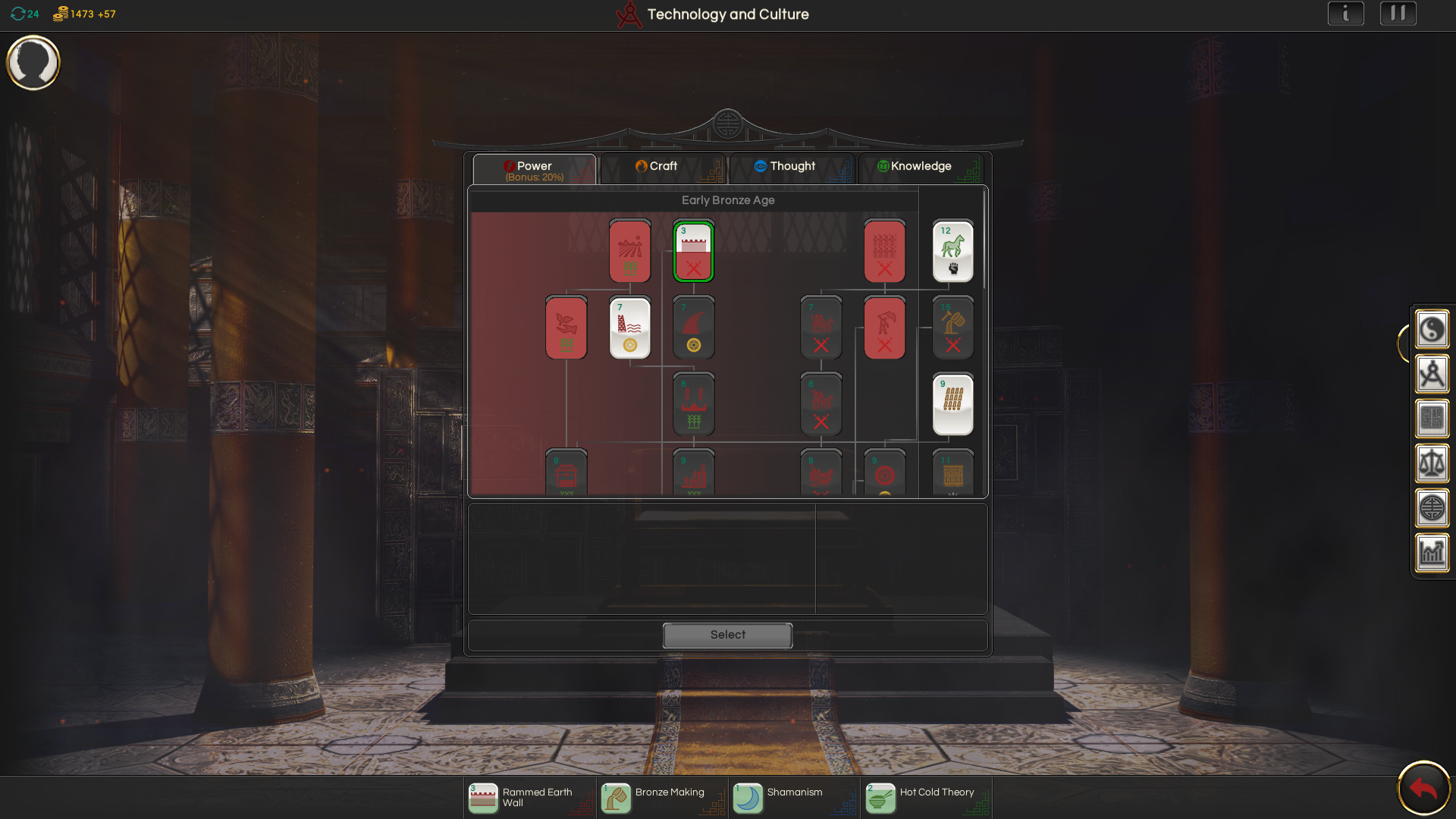
That constraint is partly why I think those random disasters make thematic sense. This was a brutal time in history where civilizations could be wiped out by a plague, a flood, or an extremely ill-timed fire, and those are the few moments where Oriental Empires shows its personality. The game isn’t afraid to mess with the player in order to bring all of those tragedies to life. There’s nothing more Bronze Age than laying siege to a smallpox-laden city.
Also, I should mention that if the idea of a really bad earthquake destroying all of the good buildings in your city seems extremely frustrating, there are certain items on the tech tree that help mitigate their damage. Just in case you thought that you couldn’t find a way to blame yourself in the midst of some atrocious luck.
Ultimately though, Oriental Empires doesn’t distinguish itself from the pack. This is a cautiously-designed, quality 4X that runs comfortably on just about any machine. That’s fine, but I can’t help but wish it were more strongly committed to its theme, more surprising and less by-the-book.
A perfectly good 4X game with an innovative combat system that feels a bit bland when framed against the richness of its setting.

Luke Winkie is a freelance journalist and contributor to many publications, including PC Gamer, The New York Times, Gawker, Slate, and Mel Magazine. In between bouts of writing about Hearthstone, World of Warcraft and Twitch culture here on PC Gamer, Luke also publishes the newsletter On Posting. As a self-described "chronic poster," Luke has "spent hours deep-scrolling through surreptitious Likes tabs to uncover the root of intra-publication beef and broken down quote-tweet animosity like it’s Super Bowl tape." When he graduated from journalism school, he had no idea how bad it was going to get.
